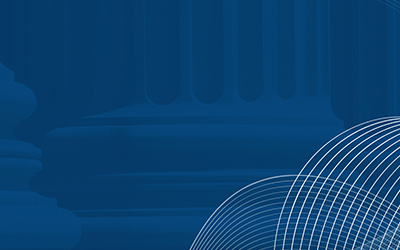COMPLIANCE
No Surprises Act Part II Interim Final Rule: The Independent Dispute Resolution Process
On October 7, 2021, the Personnel Management Office (OPM), the Internal Revenue Service (IRS), the Department of Labor (DOL) and the Health and Human Services Department (HHS) (collectively, the Departments) released the No Surprises Act (NSA) Part II Interim Final Rule. The NSA Part II Rule details some of the NSA requirements not addressed in the previous NSA regulations. The detailed requirements include the good-faith estimates of expected charges, the independent dispute resolution (IDR) process, the patient-provider dispute resolution process for uninsured and self-pay patients, and the new external review requirements. The comment period for the new final interim rule closes on December 6, 2021.
The Centers for Medicare & Medicaid Services (CMS) and Employee Benefits Security Administration (EBSA) created Surprise Billing webpages that provide information on the NSA.
HHS created the IDR Entity Certification Application Web Form Quick Reference Guide that explains the process for an arbitration organization to become a certified IDR entity. To be certified, an IDR entity must possess (directly or through contracts or other arrangements) and demonstrate sufficient expertise to conduct dispute resolution. Once certified the entity can act as a third-party responsible for settling NSA payment disputes between payers and providers. The NSA requires the Departments to publish certain information regarding the surprise billing IDR process on a public website every calendar quarter beginning in 2022. Accordingly, the Departments included certain monthly reporting requirements that certified IDR entities must disclose in Part II interim final rules. Beginning January 1, 2022, certified IDR entities must file the report in a specified format, manner and timeline with the Departments within 30 business days of the close of each month. The CMS’s Ending Surprise Medical Bills website provides information about surprise billing policies and procedures, consumer protections and help for resolving payment disputes. The EBSA created an NSA site with links to information related to Part I and II of the NSA rules. The web page also contains a link to NSA frequently asked questions (FAQs) promulgated by the Departments and links to other information related to the enforcement of the NSA. Payers and providers can find model IDR notices on the website. IDR entities can download useful information on the Calendar Year 2022 Federal IDR Process Fee Guidance, IDR Certification Application, Monthly IDR Entity Reporting Requirements and Certified IDR Entity Written Determination.
The NSA Part II Interim Final Rule establishes the IDR process for settling NSA balance billing rates disputes between payers and providers.
Before initiating the IDR process, disputing payers and providers must enter a 30-day open negotiation period. Should the disputing parties fail to agree on a payment rate, either party may initiate IDR. Out-of-network (OON) providers, facilities, providers of air ambulance services, plans and issuers in the group and individual markets may use the IDR process to determine the OON rate for applicable services after an open negotiation fails.
Either party may initiate IDR during the four-business-day period beginning on the 31st business day following the start of the open negotiation period.
CMS created an important open negotiation and IDR deadlines table and factsheet which states that the initiating party must provide the model Notice of IDR Initiation to the other. Initiating parties can send the notice electronically (e.g., by email) if they have a good-faith belief that the other party will have access to the notice and if they provide a paper copy of the notice upon request. Both parties jointly select a certified IDR entity to resolve their dispute. They have three business days to select an IDR entity after the Departments receive the Notice of IDR Initiation. The Notice of IDR Entity Selection explains how the parties notify the Departments of their IDR entity selection or what to do in case they fail to jointly select a certified IDR entity. The IDR process rules give the payer and provider 10 business days after the date of the IDR entity selection to submit their Notice of Payment Offers and additional supporting documentation. 30 business days after the IDR entity selection, the IDR entity will make a payment determination. The applicable party submits payment to the other no later than 30 business days after the payment determination. Additionally, both parties must pay an administrative fee (indexed at $50 each for 2022), and the non-prevailing party is responsible for the certified IDR entity fee for the use of this process. Additional notices and requirements related to the IDR process can be found on EBSA’s No Surprises Act page under the “Requirements Related to Surprise Billing, Part II” heading.
Beginning January 1, 2022, providers must provide good-faith estimates of expected charges to insured, uninsured and self-payment patients that request an estimate of those charges.
Specifically, the NSA rules require providers and facilities to provide a good-faith estimate of expected charges to someone that does not (a) have benefits that cover an item or service under a health plan or (b) someone that wants to have a claim submitted to their plan for a covered item or service. Providers must give individuals these good-faith estimates after a patient schedules a service or at the patient’s request. In preparation for providing an individual with an item or service, a provider or facility must inquire as to whether that person has health insurance. Should a person indicate that they do have coverage for the service, providers must determine whether the patient wants to submit a claim with their plan, issuer or carrier. The good-faith estimate must include the expected charges for the items or services that are reasonably expected to accompany the primary item or service that the patient is receiving. Other items or services include those provided by another provider or facility. HHS gives the example of a surgery in which the good-faith estimate may include the cost of the surgery, any labs or tests and the anesthesia that an anesthesiologist may administer during the operation. The estimate does not include services scheduled separately from the surgery such as pre-surgery appointments or post-op physical therapy. Primary providers may experience difficulty in gathering the cost estimates from other providers that may treat a patient as part of the primary item or service. Consequently, the Part II rules allow HHS to exercise discretion – from January 1 to December 31, 2022 – when enforcing the good-faith estimate requirement in cases where the provider’s good-faith estimate does not include expected charges from other providers involved in a patient’s care. Providers should develop systems and processes for collecting the required related services and items information from other providers during this discretionary period.
The interim final rule creates a patient-provider dispute resolution process for uninsured and self-pay patients who receive a good-faith estimate and are then billed for an amount substantially in excess of the estimate.
HHS defines “substantially in excess of the good-faith estimate” as any billed charges that are $400 greater than the good-faith estimate. If an uninsured or self-pay patient receives a substantially excessive billing charge, they then have 120 days to initiate the dispute resolution process. The patient-provider dispute resolution process has timelines separate from that of the IDR process. The fee for initiating the process is $25 for the patient. The Departments will update the fee through sub-regulatory guidance in future years. For more information about the patient-provider dispute process patients can go to the CMS’s Ending Surprise Medical Billing page.
The No Surprises Act (NSA) Part II Interim Final Rule also finalized external review rules promulgated by the Departments in 2015.
The NSA external review rules expand the scope of adverse benefit determinations eligible for external review. Effective January 1, 2022, external review applies to determinations that involve whether a plan or issuer is complying with the surprise billing and cost-sharing protections under the NSA and its implementing regulations. The external review of whether a plan followed the NSA provisions applies to grandfathered plans as well.
The Departments posted the No Surprises Act (NSA) Part II Interim Final Rule to the Federal Register on October 7, 2021.
Plan sponsors, administrators, employers, plan participants, beneficiaries and patients can access an overview of the NSA interim final rules on the CMS’s Ending Surprise Medical Billing page. Interested parties can submit comments on the new NSA interim final rules. Written comments can be mailed to the following address: Office of Health Plan Standards and Compliance Assistance; Employee Benefits Security Administration; U.S. Department of Labor; 200 Constitution Avenue NW, Room N-5653; Washington, DC 20210; Attention: RIN 1210-AB00. The comment period closes 60 days from the NSA interim final rules publishing date, so comments must be received no later than 5 p.m. on December 6, 2021.
EPIC offers this material for general information only. EPIC does not intend this material to be, nor may any person receiving this information construe or rely on this material as, tax or legal advice. The matters addressed in this document and any related discussions or correspondence should be reviewed and discussed with legal counsel prior to acting or relying on these materials.
Sign up for our Compliance Matters Newsletter
You’ll receive our monthly newsletter, as well as special compliance alerts and invitations to our compliance webinars
Related Content
Products
Employee Benefits Consulting
Our dedicated benefits team is focused on delivering better outcomes – to both your benefits program and ...
Products
Compliance
We provide comprehensive consulting services and in-depth education regarding the ever-changing employee ...
Products
Wellbeing & Health Management
Our consultants help you create a strategy around health management that will impact your culture and your ...


